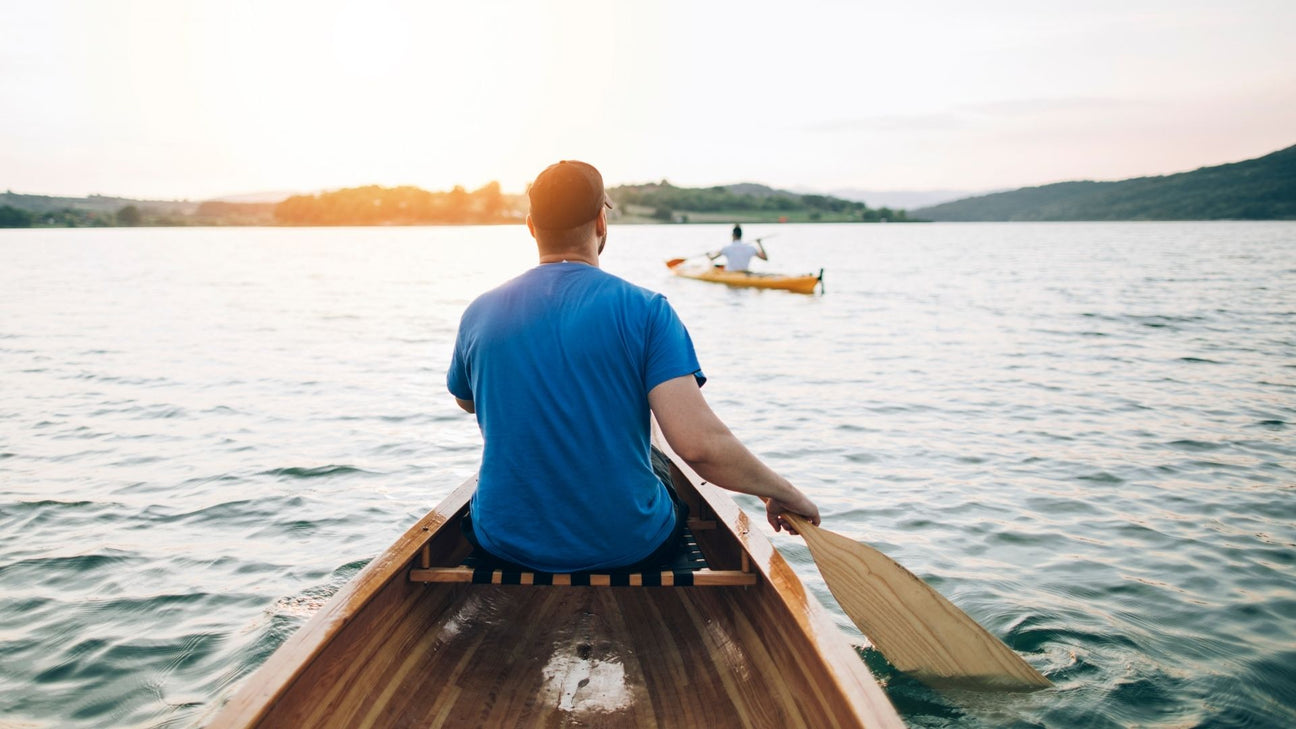Paddle boarding is a fantastic way to explore the UK’s rivers, lakes, and coastlines. However, many first-timers and even experienced paddlers often ask: Do you need a licence to paddle board in the UK? The answer depends on where you plan to paddle, and in this article, we'll break it down for you.
1. When Is a Licence Required?
In the UK, whether or not you need a licence to paddle board depends on the body of water. Here's a summary:
-
Canals and Rivers: If you're paddle boarding on a canal, river, or any inland waterway managed by the Canal & River Trust or the Environment Agency, you’ll need a licence. Some of the most popular paddling spots such as the River Thames, River Severn, and the Kennet & Avon Canal require a licence.
-
Coastal Areas and Tidal Rivers: No licence is required for paddle boarding in the sea or tidal rivers, like in locations along the coastline, including spots like Porthcawl or Thurso East in Scotland.
-
Private Lakes or Estates: You might also need permission or a permit to paddle on private lakes or water bodies, so always check with the landowner.

2. How to Get a Paddle Boarding Licence
You can obtain a paddle boarding licence in a few ways:
-
British Canoeing Membership: One of the easiest ways to get a licence is through a British Canoeing membership. This membership includes a ‘Waterways Licence,’ covering over 4,500 km of rivers and canals. The cost of a British Canoeing membership is around £47 annually, which is a small price for access to multiple waterways.
-
Local Licences: Alternatively, you can purchase a day, week, or annual licence from the Canal & River Trust or Environment Agency. For example, a day licence costs around £8-10.
3. Where Can You Paddle Board Without a Licence?
If you'd rather avoid the hassle of obtaining a licence, there are plenty of options for paddle boarding in the UK without one. Here are some top spots:
-
The Coastline: Explore places like Brighton Beach, Cornwall, or Pembrokeshire where no licences are required, and the stunning coastal views are completely free to enjoy.
-
Scottish Waters: Scotland’s waterways are more relaxed. Under the Scottish Outdoor Access Code, you can paddle board on most bodies of water without a licence, as long as you follow the rules of responsible access.
4. Do You Need Insurance for Paddle Boarding?
Although not a legal requirement, it’s recommended to have insurance when paddle boarding, especially if you're paddling in busy waterways. A British Canoeing membership typically includes third-party liability insurance, which covers any accidental damage or injury you may cause while on the water. This added protection can provide peace of mind, particularly in high-traffic areas.
5. Paddle Boarding Safety Tips
While enjoying the UK’s waterways, it’s important to follow safety guidelines:
-
Wear a Life Jacket: Even if you're a strong swimmer, it’s always advisable to wear a personal flotation device (PFD) when paddle boarding.
-
Check the Weather and Tides: Especially if you're paddling in coastal or tidal areas, always check the forecast and tide times before setting out.
-
Carry a Mobile Phone: Have a waterproof pouch for your phone in case of emergencies, and let someone know where you're going.
6. Popular Paddle Boarding Destinations in the UK
Here are some of the best paddle boarding destinations in the UK:
-
Lake District: Paddle board through the serene waters of Lake Windermere or Derwentwater, surrounded by the beautiful Cumbrian hills.
-
South Devon: Explore the calm waters and hidden coves of Salcombe and Bantham.
-
River Wye: Ideal for those wanting to paddle in tranquil surroundings, the River Wye is a scenic and accessible spot.

Whether you need a licence to paddle board in the UK depends on where you plan to go. For inland waterways, especially rivers and canals, you’ll likely need a licence, while coastal areas and many Scottish lochs remain licence-free. To avoid any complications, consider joining British Canoeing, which provides extensive waterway access and insurance. With the proper preparation, paddle boarding across the UK can be a safe and enjoyable experience.




